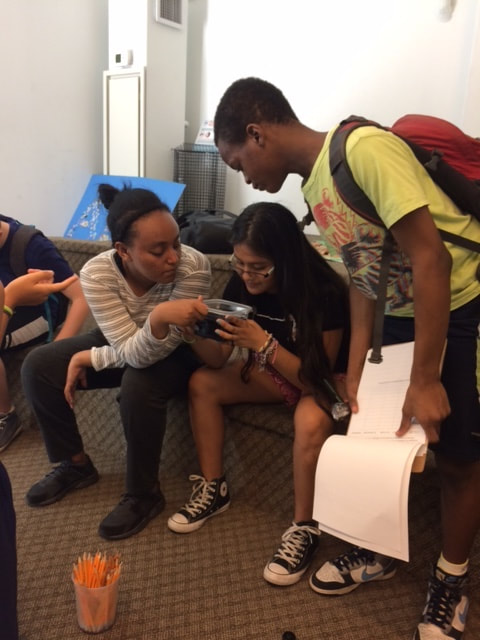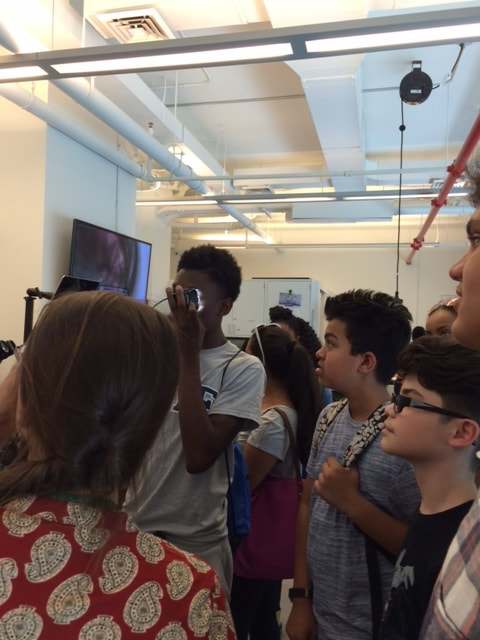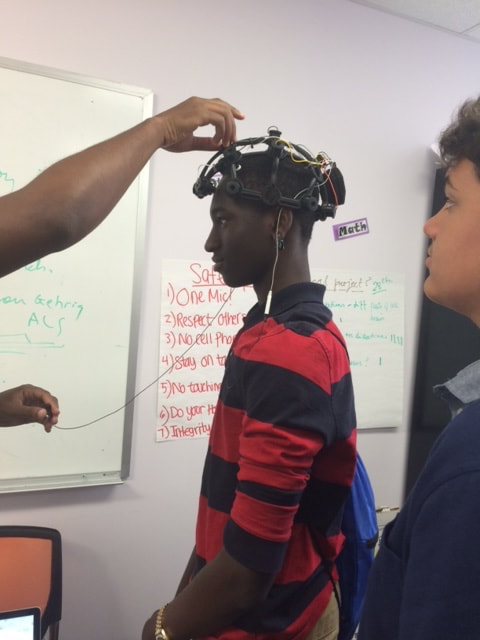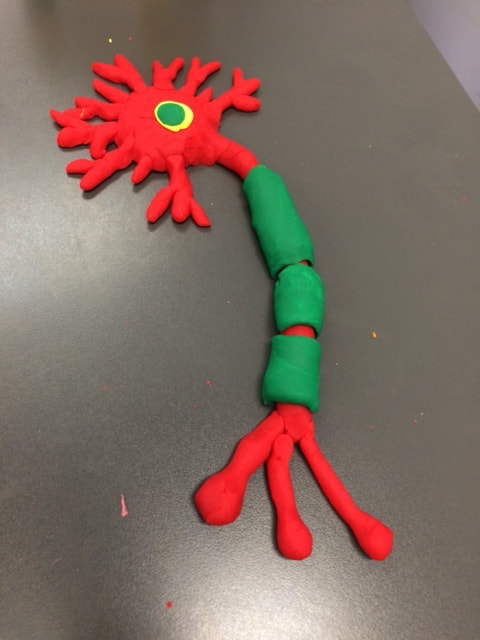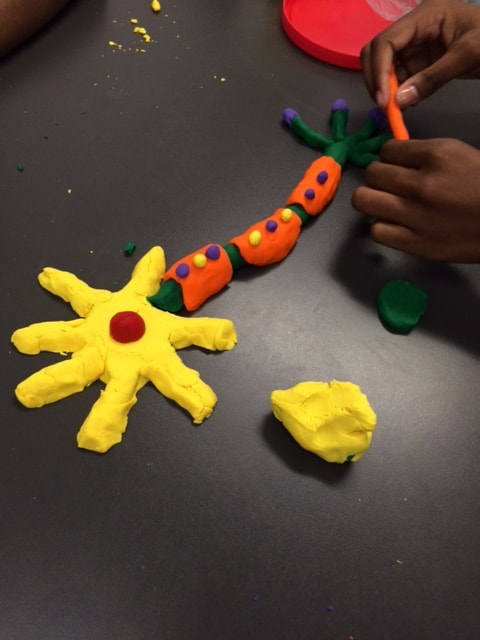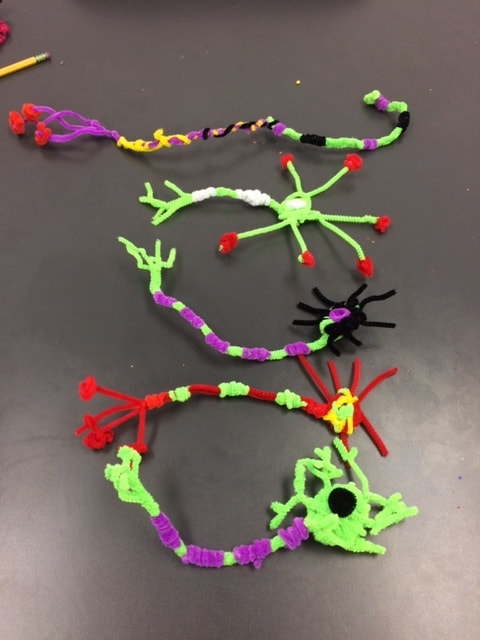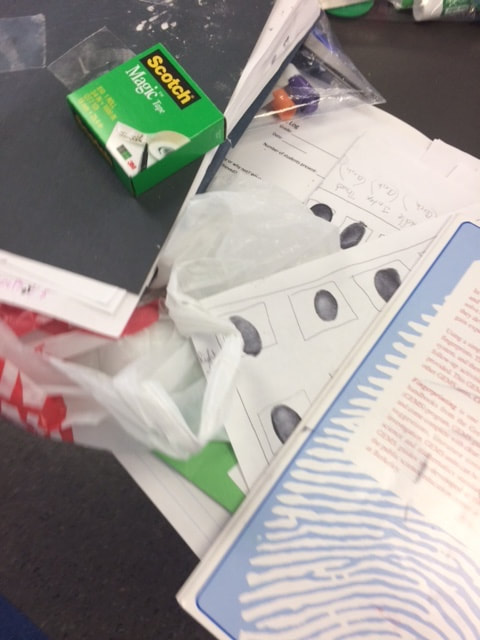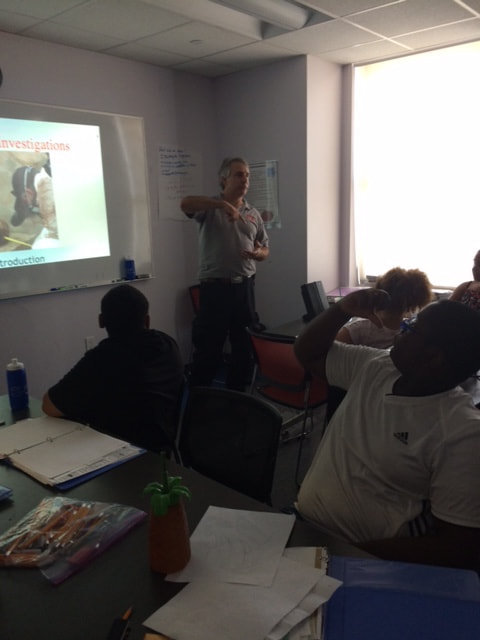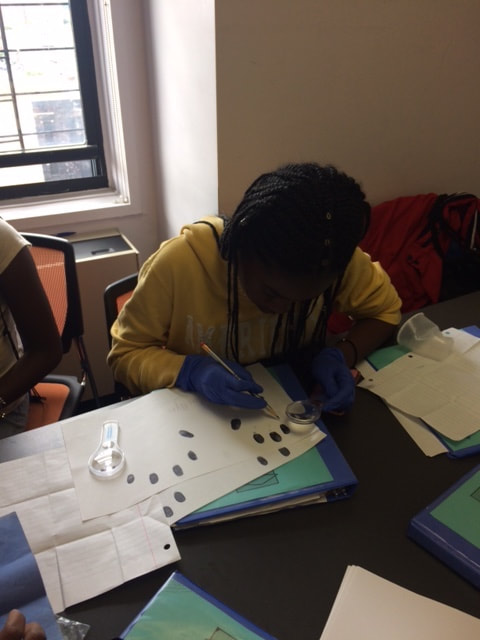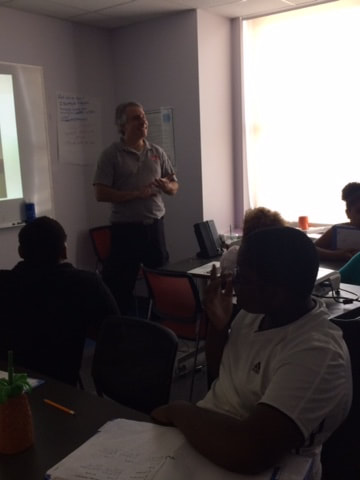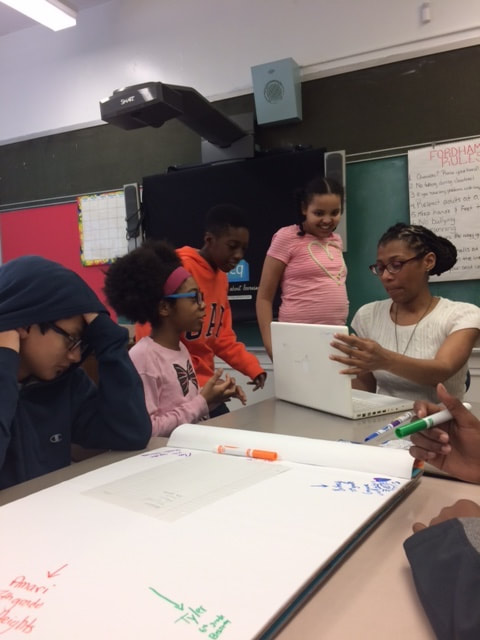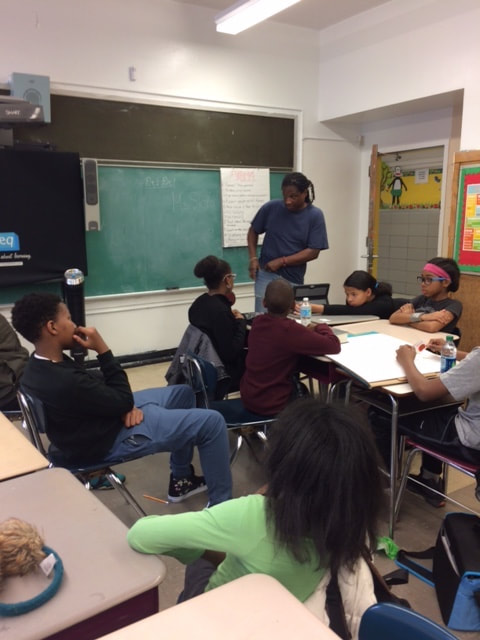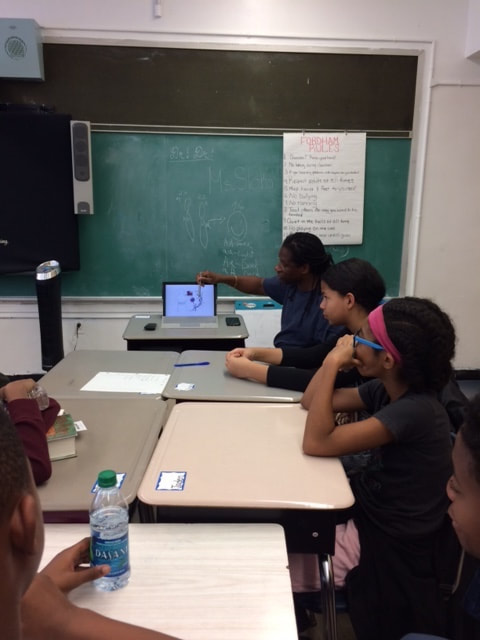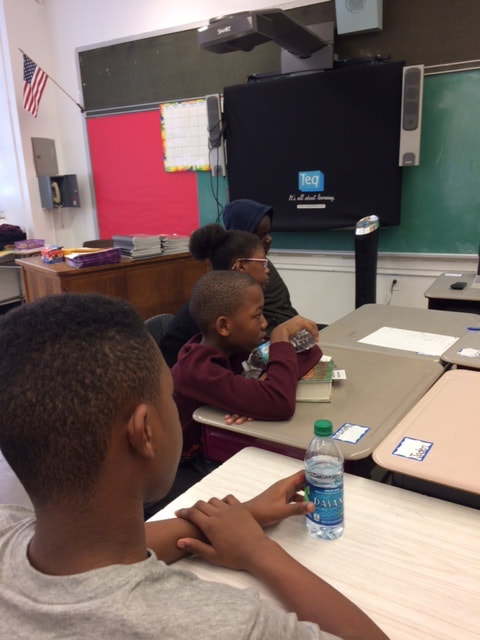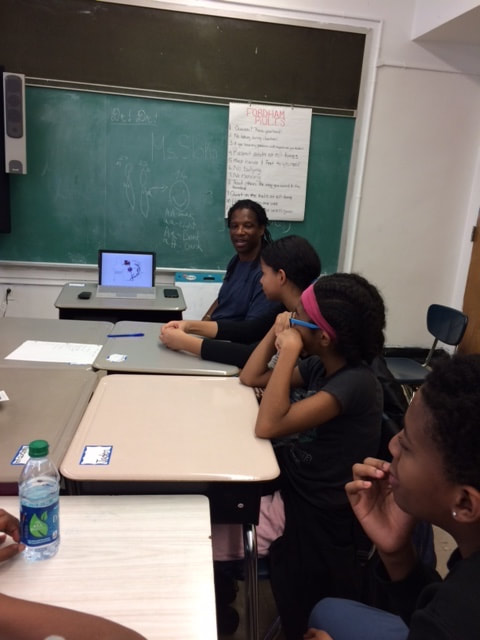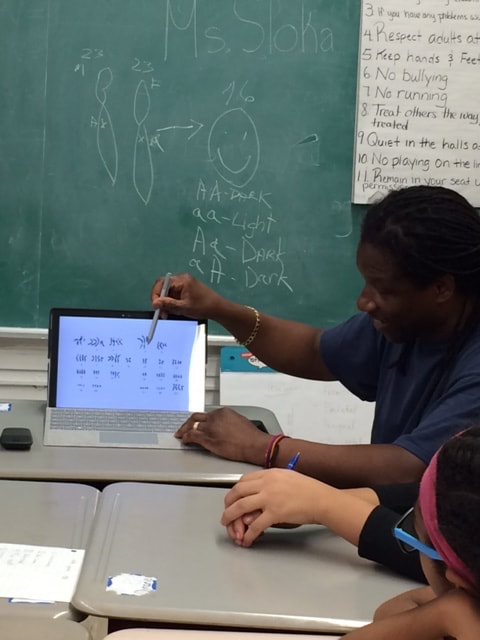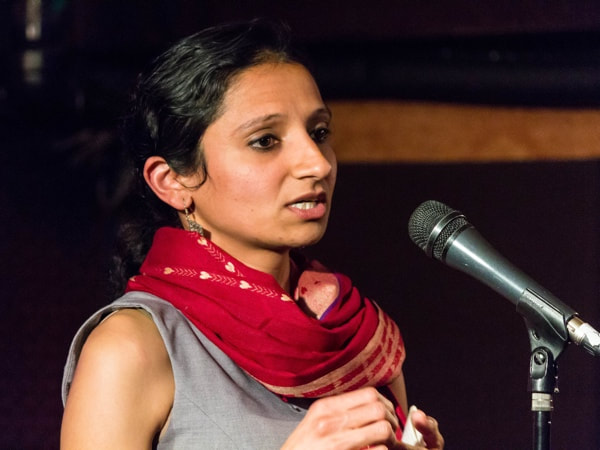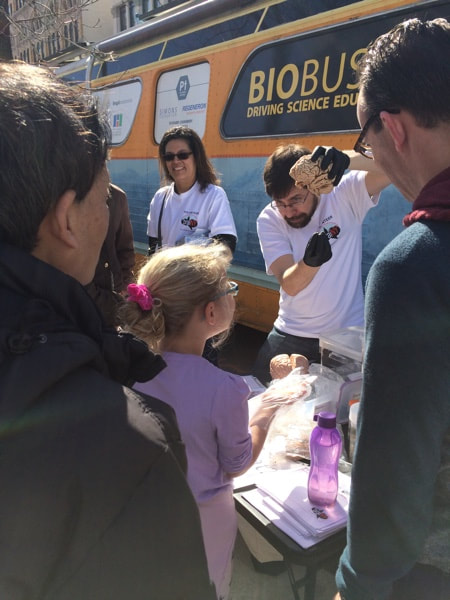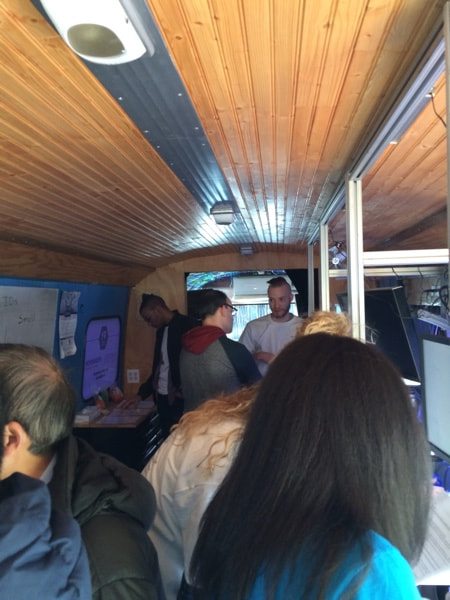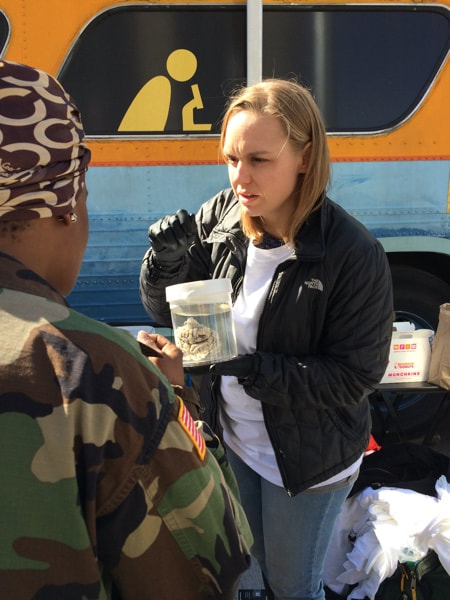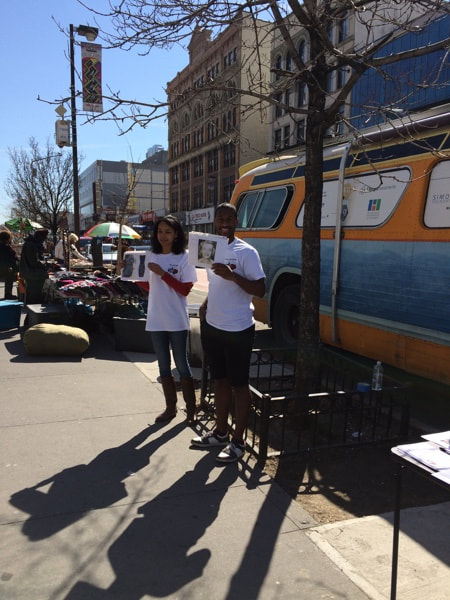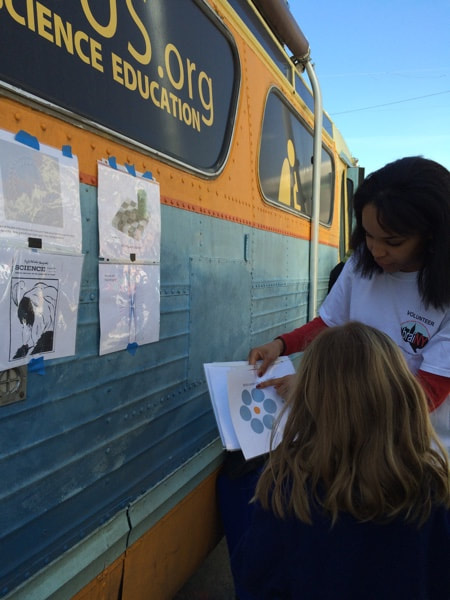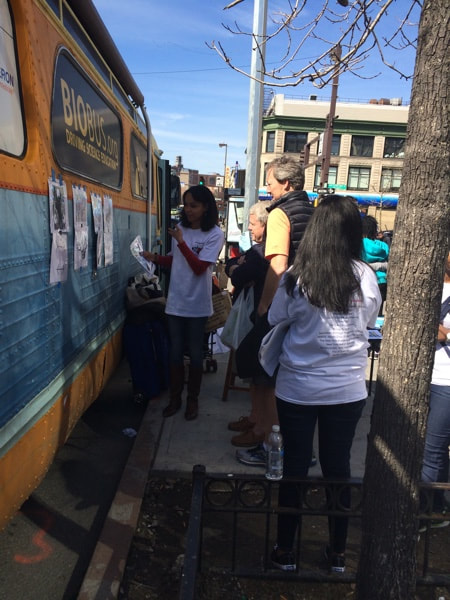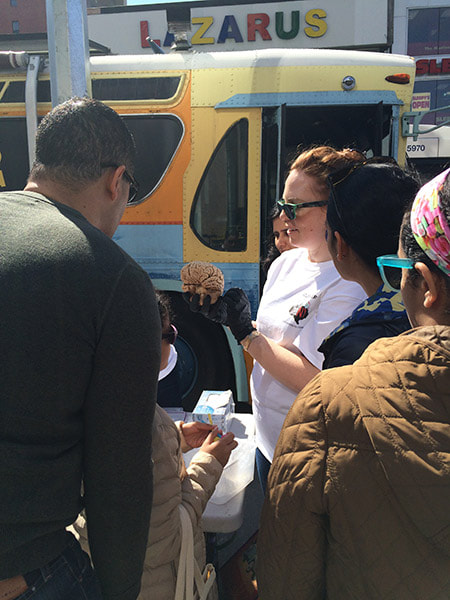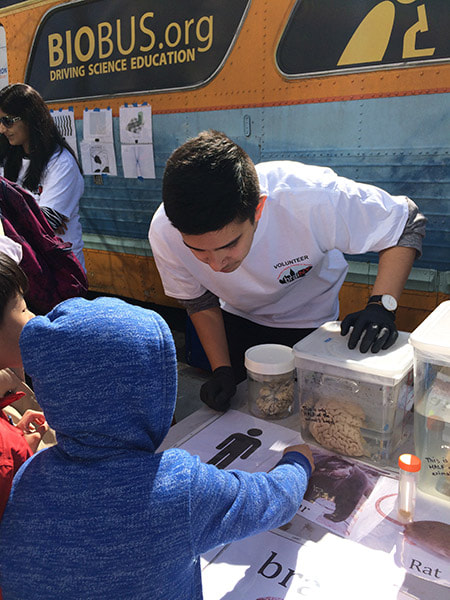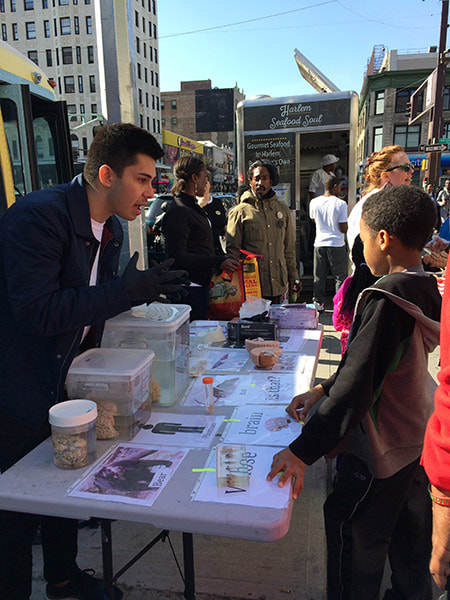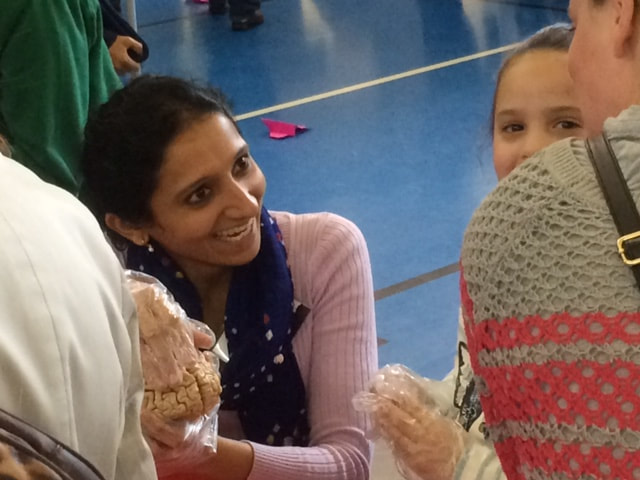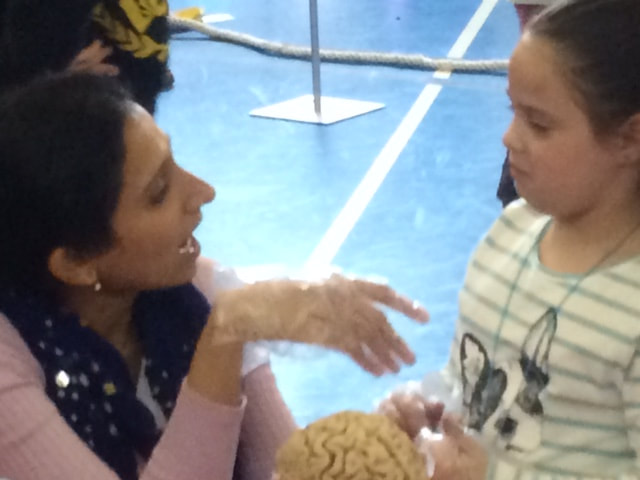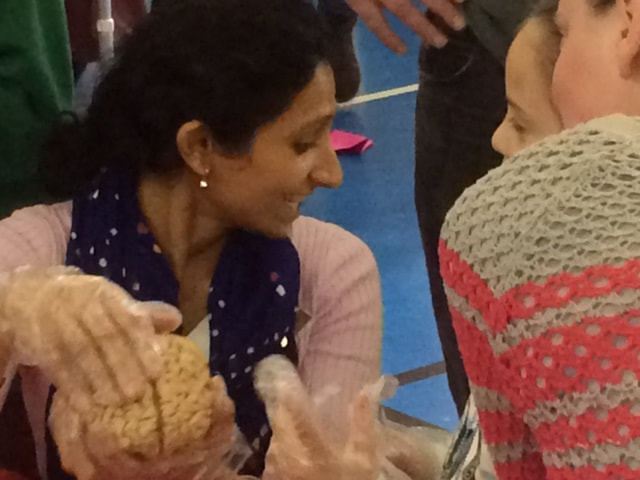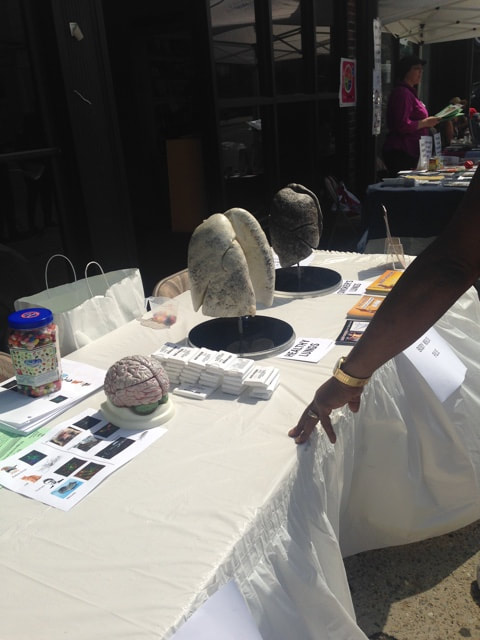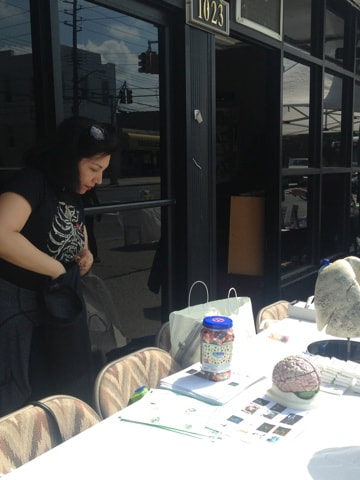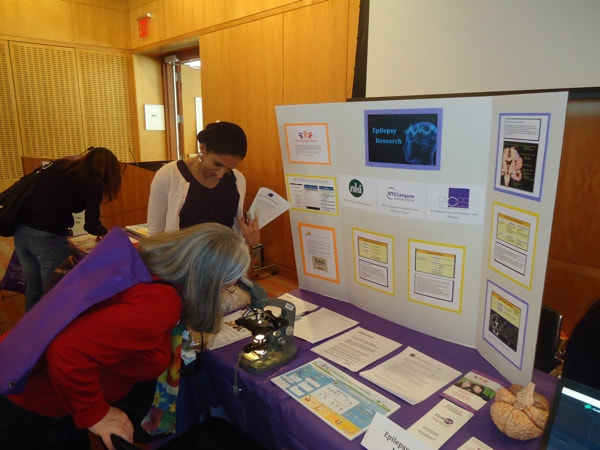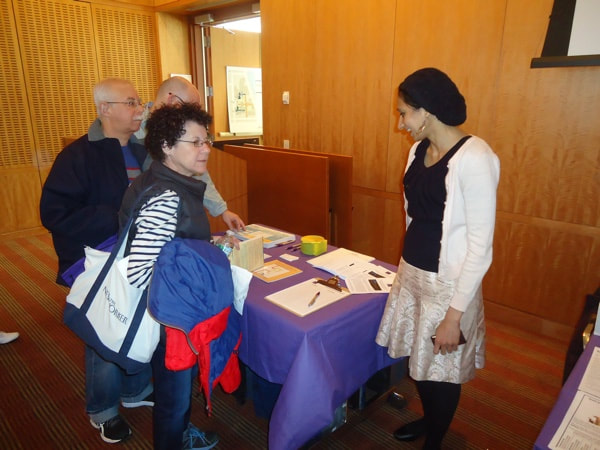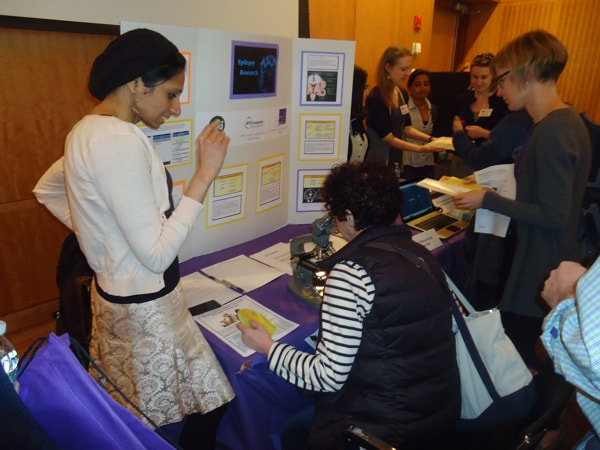Top image: Talking about the brain and behavior at The World Science Festival
Adjunct Faculty Appointment at St. Joseph's University
07/2022-present: Faculty for the course "Chromosomes and Human Disease". This course will teach learners "advanced genetics and genome-based research and leadership skills needed to leverage their knowledge for improved disease research and patient care. Specifically, learners will learn the following concepts:
07/2022-present: Faculty for the course "Chromosomes and Human Disease". This course will teach learners "advanced genetics and genome-based research and leadership skills needed to leverage their knowledge for improved disease research and patient care. Specifically, learners will learn the following concepts:
- Foundations of modern understanding: mitosis, DNA replication, and cytogenetics
- Mitosis and meiosis: features, abnormalities, and consequences
- Cytogenetic concepts, nomenclature, and methodologies
- In situ hybridization
- Abnormal phenotypes
- Chromosomal structural abnormalities and syndromes
- Chromosomal alterations and cancer
Adjunct Faculty Appointment at St. Joseph's University
07/2022-present: Faculty for the course "Issues in Genomics and Pharma". This course "exposes students to the ethical, legal, and social issues surrounding genetic testing and available direct-to-consumer genetic testing. This course will explore approaches for engaging individuals as partners in their healthcare, as well as the expanding applications of pharmacogenomics."
Specifically, I go over the following concepts with learners:
07/2022-present: Faculty for the course "Issues in Genomics and Pharma". This course "exposes students to the ethical, legal, and social issues surrounding genetic testing and available direct-to-consumer genetic testing. This course will explore approaches for engaging individuals as partners in their healthcare, as well as the expanding applications of pharmacogenomics."
Specifically, I go over the following concepts with learners:
- Ethical, legal, and social implications of genetics and genomics
- Privacy of genetic information
- Financial issues in clinical genetic testing
- Application of genetics and genomics in criminology
- Direct-to-consumer genetic testing
- Decision-making and cascade testing
- Pharmacogenomics testing platforms for consumers
- Influence on drug selection and dosage
Adjunct Faculty Appointment at St. Joseph's University
07/2022-present: Faculty for the course "Evolutionary Analysis". This course introduces learners to evolutionary science and population genetics, with a focus on the importance of four factors: selection, migration, mutation, and genetic drift.
Specifically, I go over the following concepts with learners:
07/2022-present: Faculty for the course "Evolutionary Analysis". This course introduces learners to evolutionary science and population genetics, with a focus on the importance of four factors: selection, migration, mutation, and genetic drift.
Specifically, I go over the following concepts with learners:
- The Evidence for Evolution
- Natural Selection and Phylogenetic Tree Relationships
- Genetic Mutations and Mendelian Genetics
- Migration, Genetic Drift, and Mating
- Evolution at Multiple Loci
- Adaptation and Sexual Selection
- Human Health's Evolution and the Molecular Basis of Adaptation
- Human Evolution
Adjunct Faculty Appointment at St. Joseph's University
07/2022-present: Faculty for the course "Molecular Basis of Human Inherited Disease". For this course, I work with graduate students and focus on the molecular basis of diseases of human genetics and its applications to modern research. Students undertake a comprehensive examination of the principles of human inheritance in the context of both normal human variation and human disease. The course explores mechanisms of gene regulation and provides an introduction to the current methods in genome analysis.
Specifically, I go over the following concepts with my students:
07/2022-present: Faculty for the course "Molecular Basis of Human Inherited Disease". For this course, I work with graduate students and focus on the molecular basis of diseases of human genetics and its applications to modern research. Students undertake a comprehensive examination of the principles of human inheritance in the context of both normal human variation and human disease. The course explores mechanisms of gene regulation and provides an introduction to the current methods in genome analysis.
Specifically, I go over the following concepts with my students:
- Human Inheritance Patterns and Evolutionary History
- Human Genomes
- Epigenetics
- Human Genetic Diseases and Cancer
- Mapping Monogenic and Complex Disease
- Contemporary Genetic Manipulation
- Genetic Testing and Impacts on Treatment Options
Adjunct Faculty Appointment at USciences Online (now St. Joseph's University)
01/2022-07/2022: Faculty for "Clinical applications of genetics and genomics". For this course, I work with graduate students and focus on the genetic basis of disease and cytogenic analysis for applications to clinical care. Diagnostic molecular approaches and the clinical translation of genetic and genomic health information in a personalized healthcare environment are explored. Specifically, I go over the following concepts with my students:
01/2022-07/2022: Faculty for "Clinical applications of genetics and genomics". For this course, I work with graduate students and focus on the genetic basis of disease and cytogenic analysis for applications to clinical care. Diagnostic molecular approaches and the clinical translation of genetic and genomic health information in a personalized healthcare environment are explored. Specifically, I go over the following concepts with my students:
- Diagnosis of developmental problems and dysmorphia
- Diagnosing intellectual disabilities and global developmental delay
- Standards of cytogenetics and current application standards
- Molecular genetic testing: the state of the industry
- The historic achievement and challenges of transplantation
- Genetic testing for common adulthood diseases
- Addressing emergent issues in clinical genetics
- National and international approaches to genomic public health
03/2022-07/2022: Faculty for the course "Principles of Genetics" with graduate students. This course provides students with an introduction to genetics, with a focus on transmission and molecular genetics. The course makes use of bioinformatics to explore gene function and covers pertinent applications of bioinformatics and genetics to modern biological problems. Topics include chromosome structure and replication, variations and extensions of transmission genetics, genetic linkage and mapping, regulation of gene expression, epigenetics, genetic mutations, genetics of cancer, and the principles of genetic engineering. The specific topics explored are:
- Principles of genetics
- Transmission genetics
- Key characteristics of chromosomes
- DNA structure, function, and replication
- Transcription and translation
- Gene mutation and replication
- Transcriptional, post-transcriptional, and epigenetic regulation of gene expression
- Recombinant DNA and genomic technologies
04/2022-07/2022: Faculty for the course "Ethical, Legal, and Social Issues in Genomics and Pharmacogenomics" with graduate students. This course exposes students to the ethical, legal, and social issues surrounding genetic testing andavailable direct-to-consumer genetic testing. This course will explore approaches for engaging individuals as partners in their healthcare, as well as the expanding applications of pharmacogenomics. The specific topics explored are:
- Ethical, legal, and social implications of genetics and genomics
- Privacy of genetic information
- Financial issues in clinical genetic testing
- Application of genetics and genomics in criminology
- Direct-to-consumer genetic testing
- Decision-making and cascade testing
- Pharmacogenomics testing platforms for consumers
- Influence on drug selection and dosage
Seminars on Science - the diversity of fishes
09/2022-present: As Course Scientist for the American Museum of Natural History's online course for educators on the diversity of fishes, I facilitate discussion among participants, and present and explain new research. You can find the course here. Topics discussed include:
09/2022-present: As Course Scientist for the American Museum of Natural History's online course for educators on the diversity of fishes, I facilitate discussion among participants, and present and explain new research. You can find the course here. Topics discussed include:
-
WEEK 1
-
WEEK 2
-
WEEK 3
-
WEEK 4
-
WEEK 5
-
WEEK 6
<
>
Why study fish?
- An introduction to the diversity of fishes
- Fishes as one of the most diverse vertebrates on Earth
- An orientation to the Ichthyology Department at the American Museum of Natural History
Implications of living in water
- Examine the constraints and complexities of life in water
- Explore the evolutionary innovations that allow fishes to live in their aqueous environments.
How is the Diversity of Species Studied?
- Introduction to the scientific discipline of systematics that describes the diversity of living forms in terms of species, history, and distribution
- Interpretation of cladograms and construction of dichotomous keys
- Highlighting the significance of systematics within the biological sciences
What Evidence is Useful in Understanding Fish? The Case of Hypoptopoma Part 1
- Familiarization with the first steps in the real work of systematists
- Learners will be asked to closely observe images and use them to draw conclusions or answer questions in order to discover the characters unique to Hypoptopoma
What Evidence is Useful in Understanding Fish? The Case of Hypoptopoma Part 2
- Learning how the characters observed in contemporary species of Hypoptopoma give clues that help develop insight into their history.
- For example, their distribution over time mirrors the formation of major geographical features in South America.
What Threatens the Diversity of Fish?
- Systematics and the classification of organisms that result from this kind of research as fundamental for conserving diversity
To make informed decisions about conservation initiatives, there must first be an accurate representation of what exists in the world's ecosystems. The biological "success" of lineages is discussed and debated.
Seminars on Science - Genetics, Genomics, Genethics
10/2020-present: As Course Scientist for the American Museum of Natural History's online course for educators on genetics, I facilitate discussion among participants, and present and explain new research. You can find the course here. Topics discussed include:
10/2020-present: As Course Scientist for the American Museum of Natural History's online course for educators on genetics, I facilitate discussion among participants, and present and explain new research. You can find the course here. Topics discussed include:
-
WEEK 1
-
WEEK 2
-
WEEK 3
-
WEEK 4
-
WEEK 5
-
WEEK 6
<
>
Introduction to the science of genetics
- Learn the difference between genetics and genomics.
- Trace Gregor Mendel's work as the father of genetics, and become familiar with Mendel's basic tenets.
Nature vs. nurture?
- Examine the "cooperation" between our genes and our environment.
- Learn how studies of twins tease out the impact of the environment on traits.
- Analyze what determines the evolution of a species.
The human genome
- Learn about the Human Genome Project.
- Recognize the elements that comprise a genome.
- Trace the genetic discoveries and the development of molecular lab techniques from the 1940s to the present.
Applications of the human genome project
- Recognize tools used for measuring gene activity.
- Consider the problems of handling, using, and understanding the enormous amounts of data generated by the Human Genome Project.
The Ethical Implications of Reshaping our World
- Learn about the ethical issues that arise as our knowledge of our genome increases.
- Reflect on possible uses and abuses of the new genetic technology.
- Investigate the differences between cure and genetic enhancement in humans.
The Ethical Implications of Reshaping our World (Part II)
- Review the techniques used in cloning, and discuss the ways in which cloning might be used.
- Examine the pros and cons of increasing our life spans.
Seminars on Science - The Brain: Structure, Function, and Evolution
03/2017-present: As Course Scientist for the American Museum of Natural History's online course for educators on neuroscience, I facilitate discussion among participants, and present and explain new research. You can find the course here. Topics discussed include:
03/2017-present: As Course Scientist for the American Museum of Natural History's online course for educators on neuroscience, I facilitate discussion among participants, and present and explain new research. You can find the course here. Topics discussed include:
-
WEEK 1
-
WEEK 2
-
WEEK 3
-
WEEK 4
-
WEEK 5
-
WEEK 6
<
>
How does the brain work?
- This session includes basic anatomy of nerve cells, the breathtaking speed and complexity with which they communicate, the main components of the brain, and their primary functions.
- We talk about functional MRI, what we can (and can’t) learn with this technique, and how it can be used to diagnose diseases.
How do we sense?
- We see how our brains transform a barrage of sensory input into what we experience as vision, smell, taste, hearing, and touch.
- We study the sense organs themselves, which are remarkably different from one another, and go on to examine how and where in the brain the information gets processed.
How do we feel?
- Looking beyond the concepts of short- and long-term memory, we look at the different kinds of memory involved in different parts of the brain, and how they play a part in how we express emotions.
- We discuss the anatomy of emotions which involves the limbic system along with complex connections to the rest of the brain.
- We also study what we can learn about social interactions and learning by studying model organisms.
How do we think?
- We discuss processes unique to the human brain: planning, problem solving, and decision- making.
- We discuss "neuroeconomics": an interdisciplinary approach to understanding the neural events that underlie behavioral decision-making.
How do our brains change?
- We discuss that our brains are profoundly affected by our experiences, and also that we have the ability to recover from trauma with appropriate training.
How has our brain evolved?
- In the final week we start with a tour of the nervous system through the tree of life, and then focus on one extraordinary human attribute: the capacity for abstract thought.
- We discuss that at some point in our evolutionary past, humans developed the ability to use symbols to represent our interior and exterior experiences, and talk about how brain size evolved.
Seminars on Science - Evolution
03/2017-present: As Course Scientist for the American Museum of Natural History's online course for educators on evolution, I facilitate discussion among participants, and present and explain new research. You can find the course here. Topics discussed include:
03/2017-present: As Course Scientist for the American Museum of Natural History's online course for educators on evolution, I facilitate discussion among participants, and present and explain new research. You can find the course here. Topics discussed include:
-
WEEK 1
-
WEEK 2
-
WEEK 3
-
WEEK 4
-
WEEK 5
-
WEEK 6
<
>
What is the evidence for evolution?
- We provide brief overviews on paleontology and systematic biology, and how scientists in these two disciplines discover and describe Earth's species, determine their evolutionary relationships, and use those relationships to infer how life has diversified and evolved across space and time
How Do We Reconstruct Evolutionary History?
- In this module we examine the evidence and methods that scientists employ to reconstruct the history of life.
- Then we discuss the general pattern of relationships among the major groups of organisms, and how those groups have diversified across time.
How does evolution work?
- This week we turn to the mechanisms of evolution, and explore the importance of genetic variation within populations, how that variation is related to phenotypic variation within them, and how phenotypic evolution is in turn shaped by natural selection and other mechanisms.
How do new species form?
- We discuss The Origin of Species—the big question that Darwin addressed in his famous book published in 1859.
- Participants are exposed to the debate about what a species is and why it's often difficult to discern species limits.
- We also review the different ways in which evolutionists think species arise, and how we study these phenomena.
How have humans evolved?
- Fossil records show that Homo sapiens is only one of many hominid species to have lived on Earth.
- We discuss whether the fact that we're the only species left from our lineage is unusual in evolutionary terms.
- We discuss what we can learn from comparisons with our closest living relations, the bonobo and the chimpanzee.
How does evolution impact our lives?
- The course ends with a summary of the many ways in which this contributes to our individual and collective well-being.
- We also discuss the implications and importance of teaching evolution in schools.
Coordinator and Mentor: BraiNY bunch
08/2021 and 02/2021: BraiNY Bunch is an open, virtual journal club (a meeting to discuss scientific papers) co-led by two students (high school and/or early college), coordinated and mentored by a graduate student, postdoc, or research staff. I have facilitated these discussions to give students the opportunity to learn about different areas of neuroscience through careful reading and discussion of scientific findings. Here is one of the braiNY bunch sessions!
08/2021 and 02/2021: BraiNY Bunch is an open, virtual journal club (a meeting to discuss scientific papers) co-led by two students (high school and/or early college), coordinated and mentored by a graduate student, postdoc, or research staff. I have facilitated these discussions to give students the opportunity to learn about different areas of neuroscience through careful reading and discussion of scientific findings. Here is one of the braiNY bunch sessions!
Volunteer coordinator: Come be BraiNY
01/2018-03/2020: BraiNY is a neuroscience outreach organization with its main mission to make brain science accessible to the broader community. We also promote mentorship and career development for young neuroscientists. For several Brain Awareness Week events, I have worked as the volunteer coordinator. In this role, I connect with institutional representatives to ensure that all events have a sufficient number of volunteers. I also coordinate with volunteers and make sure that their experience was fulfilling. Additionally, I served on the Equity and Representation Team of Come beBraiNY to promote diversity and inclusive practices.
01/2018-03/2020: BraiNY is a neuroscience outreach organization with its main mission to make brain science accessible to the broader community. We also promote mentorship and career development for young neuroscientists. For several Brain Awareness Week events, I have worked as the volunteer coordinator. In this role, I connect with institutional representatives to ensure that all events have a sufficient number of volunteers. I also coordinate with volunteers and make sure that their experience was fulfilling. Additionally, I served on the Equity and Representation Team of Come beBraiNY to promote diversity and inclusive practices.
New York University: Medical Communication
03/2016-05/2021: Co-director with Christina Hughes, PhD, for a Medical Communication course at NYU, intended for graduate students and postdoctoral fellows who are curious about a non-academic career trajectory after their graduate or postdoctoral work. This eight week-long course gives participants an opportunity to gauge their interest in medical communication. Participants are given several assignments to familiarize themselves with typical work in the Medical Communications field.
The objectives of the course are:
Topics discussed include:
03/2016-05/2021: Co-director with Christina Hughes, PhD, for a Medical Communication course at NYU, intended for graduate students and postdoctoral fellows who are curious about a non-academic career trajectory after their graduate or postdoctoral work. This eight week-long course gives participants an opportunity to gauge their interest in medical communication. Participants are given several assignments to familiarize themselves with typical work in the Medical Communications field.
The objectives of the course are:
- To familiarize participants with medical communications (med comm) as a viable alternative career path
- To understand basics of clinical trials
- To learn how to make the switch from academia to med comm
- To get experience with hands-on assignments
- To understand what skills participants have that might make a career in med comm a good fit
Topics discussed include:
- An introduction to medical communication
- An introduction to clinical trials
- Medical writing tests
- Panel discussions: "Publications", "Strategy", "Making the transition from academia"
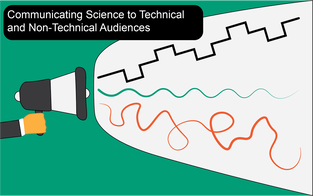 Image developed by Kate Bredbenner, PhD.
Image developed by Kate Bredbenner, PhD.
New York Academies of Science
07/2020: Developed and co-hosted a series of webinars on science communication for technical and non-technical audiences. This hands on training elucidated the nuances to consider when curating scientific communications to different audiences. The webinars were in collaboration with Kate Bredbenner, PhD.
07/2020: Developed and co-hosted a series of webinars on science communication for technical and non-technical audiences. This hands on training elucidated the nuances to consider when curating scientific communications to different audiences. The webinars were in collaboration with Kate Bredbenner, PhD.
New York University Office of Postdoctoral Affairs
03/2018: I spoke at a series of two webinars titled "Find you MedComm calling" on applying for a medical writer position. This webinar focused on how to tailor a resume for medical communications, and the interview process, including the writing test that interviewees have to complete. More than 100 participants registered for this webinar series.
03/2018: I spoke at a series of two webinars titled "Find you MedComm calling" on applying for a medical writer position. This webinar focused on how to tailor a resume for medical communications, and the interview process, including the writing test that interviewees have to complete. More than 100 participants registered for this webinar series.
NYU SciPhD VIP Networking Reception
02/2018: I discussed my role as a health care consultant and answered questions from the participants of the SciPhD Business of Science Certificate Program.
02/2018: I discussed my role as a health care consultant and answered questions from the participants of the SciPhD Business of Science Certificate Program.
New York Academy of Sciences Pre-College Leadership Institute
07/2017: As a guest scientist, I evaluated students' projects, including research timelines, project goals, outcomes, and expected completion dates to improve their projects.
07/2017: As a guest scientist, I evaluated students' projects, including research timelines, project goals, outcomes, and expected completion dates to improve their projects.
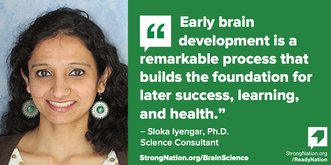
Ready Nation
06/2017-present: I completed training as a member of ReadyNation's Brain Science Speakers Bureau. ReadyNation is an organization of business leaders promoting solutions to strengthen the workforce. As part of an initiative to highlight the importance of positive relationships and quality engagements in children’s brain development, ReadyNation offers scientists as speakers for events.
06/2017-present: I completed training as a member of ReadyNation's Brain Science Speakers Bureau. ReadyNation is an organization of business leaders promoting solutions to strengthen the workforce. As part of an initiative to highlight the importance of positive relationships and quality engagements in children’s brain development, ReadyNation offers scientists as speakers for events.
World Science Festival 2017
06/2017: I co-developed content for World Science Festival 2017, which was held at Washington Square Park in New York City. At the Greater NYC Chapter of the Society for Neuroscience (beBraiNY) table, we focused on vision, with activities that helped kids understand how our eyes and brains work together to help us see the world. Young students learned how nocturnal animals are able to see, learn about the pit organ in snakes that allows them to detect infrared radiation from miles away, put eyes and brain to work by playing an attention game, and make colors disappear.
06/2017: I co-developed content for World Science Festival 2017, which was held at Washington Square Park in New York City. At the Greater NYC Chapter of the Society for Neuroscience (beBraiNY) table, we focused on vision, with activities that helped kids understand how our eyes and brains work together to help us see the world. Young students learned how nocturnal animals are able to see, learn about the pit organ in snakes that allows them to detect infrared radiation from miles away, put eyes and brain to work by playing an attention game, and make colors disappear.
|
Harlem Educational Activities Fund (Forensics)
7/2017-8/2017: Summer Quest elective teacher for the Harlem Educational Activities Fund. I designed and implemented a forensics curriculum for 20 seventh graders, showing how science can be used to help solve crimes. Students studied fingerprinting and fiber analysis, heard former NYC police detective John Paolucci describe forensic evidence collection and crime scene processing in the field, and went on a field trip to the new cybercrime lab of the New York County district attorney's Cybercrime and Identity Theft Bureau. Harlem Educational Activities Fund (Neuroscience)
9/2016-12/2016: "High Expectations" elective teacher for the Harlem Educational Activities Fund program in Brooklyn. I adapted the curriculum from the Summer Quest course, and invited veterinarian La'Toya Latney, DVM, and guest neuroscientist Rodney Wiltshire, PhD, to talk to the students. Harlem Educational Activities Fund (Neuroscience)
5/2016-7/2016: I designed, implemented and evaluated a neuroscience curriculum for 20 ninth graders, coordinating with a few teachers to make sure my curriculum was strong. I organized visits from a neuroscientist to demonstrate an EEG helmet and members of the community to demo sign language. I arranged for a field trip to Biobase, where we looked at how alcohol alters the heart rate of Daphnia and did an experiment to see if Daphnia are attracted to different color light. To explain plasticity, I used dance, and had a student play the viola. I coordinated with NYU for supplies, and mentored two teaching assistants. For their final projects, the students created a video (shown below) entitled "My strange addiction". This article for Neuronline give a few pointers to scientists interested in teaching younger students. |
Biobase
04/2016-08/2016: Managed the volunteer program at Biobase for science outreach and education. In this role, I developed the language and content for email campaigns, co-led volunteer orientation programs, and devised strategies to evaluate volunteer engagement.
04/2016-08/2016: Managed the volunteer program at Biobase for science outreach and education. In this role, I developed the language and content for email campaigns, co-led volunteer orientation programs, and devised strategies to evaluate volunteer engagement.
Scientists of New York
05/2017: I was featured in The Rockefeller University Science Outreach Program's Scientists of New York.
05/2017: I was featured in The Rockefeller University Science Outreach Program's Scientists of New York.
Lyons Community School
05/2016-06/2016: I served as an external evaluator for neuroscience projects for students at Lyons Community School.
05/2016-06/2016: I served as an external evaluator for neuroscience projects for students at Lyons Community School.
|
Storycollider
04/2016: I spoke at Storycollider, at Union Hall, about my experience of sacrificing rats in the lab for the first time after working at an animal shelter in Ahmedabad, India. Although animal research is not the most pleasant thing scientists do, it is sometimes necessary to find new cures and therapies for diseases. |
|
Brain Awareness Week 2016
03/2016: ‘Uptown Brain Awareness Week’ in Harlem, NY (with 60 volunteers and close to 400 participants). For this event, I organized the Biobus – a mobile lab which traditionally has been located in Washington Square Park – in uptown Manhattan. I organized the content and managed 60 volunteers. We heavily publicized the event in various newspapers and websites. Close to 400 participants came and leaned about brains, illusions and microscopes! After the fact, I wrote an article in Neuronline about organizing a successful Brain Awareness Week event, which can be found here, and below as a PDF. The event was also covered in:
| |||||||
|
City of Science Brain Awareness Week
05/2016: I organized a neuroscience exhibit for the City of Science event at Lehman College, part of this year's World Science Festival. We got mentioned in the New York Times. |
Brain Awareness Week 2016
03/2016: Organized an epilepsy booth for the Brain Fair at NYU Medical School.
03/2016: Organized an epilepsy booth for the Brain Fair at NYU Medical School.
Brain Awareness Week 2016
03/2016: ‘Ask the Expert’ at Body Worlds Pulse museum, Times Square NYC. For this event, I organized volunteers and content. We had close to 50 participants.
03/2016: ‘Ask the Expert’ at Body Worlds Pulse museum, Times Square NYC. For this event, I organized volunteers and content. We had close to 50 participants.
World Science Festival 2015
05/2016: I organized 15 volunteers and co-developed content for the World Science Festival. After brainstorming with other leaders of the Neuroscience Outreach Group, we decided to talk about attention by having people do the 'invisible gorilla' test. I also developed a presentation for kids entitled ‘So you think you are smart?’ and talked about animal cognition.
05/2016: I organized 15 volunteers and co-developed content for the World Science Festival. After brainstorming with other leaders of the Neuroscience Outreach Group, we decided to talk about attention by having people do the 'invisible gorilla' test. I also developed a presentation for kids entitled ‘So you think you are smart?’ and talked about animal cognition.
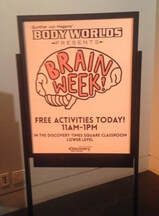 Brain Awareness Week event at Body Worlds Pulse, 2016
Brain Awareness Week event at Body Worlds Pulse, 2016
Brain Awareness Week 2015
03/2016: Organized a Brain Awareness Week event at Body Worlds Pulse, NYC. Read more about it here.
03/2016: Organized a Brain Awareness Week event at Body Worlds Pulse, NYC. Read more about it here.
Karabots Junior Fellows program; Mutter Museum, Philadelphia
09/2019: I gave a seminar entitled "Defeating Diseases through Knowledge of Evolution" to 30 Philadelphia high school sophomores from underserved communities interested in pursuing careers in healthcare or medicine.
11/2017: I gave a seminar entitled "Exploring Neuroscience" to 22 Philadelphia high school sophomores from underserved communities interested in pursuing careers in healthcare or medicine.
09/2019: I gave a seminar entitled "Defeating Diseases through Knowledge of Evolution" to 30 Philadelphia high school sophomores from underserved communities interested in pursuing careers in healthcare or medicine.
11/2017: I gave a seminar entitled "Exploring Neuroscience" to 22 Philadelphia high school sophomores from underserved communities interested in pursuing careers in healthcare or medicine.
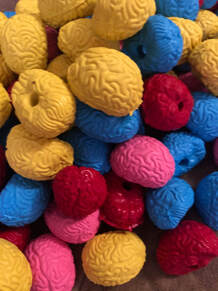
Body Worlds Pulse, NYC
12/2014-08/2015: Director of Education at Body Worlds Pulse, at Discovery Times Square NYC. I developed ‘Kid MD’- a program for children 8 and older to learn about the human body and worked with over 200 students.
This program was covered in:
12/2014-08/2015: Director of Education at Body Worlds Pulse, at Discovery Times Square NYC. I developed ‘Kid MD’- a program for children 8 and older to learn about the human body and worked with over 200 students.
This program was covered in:
Body Worlds Pulse, NYC
08/2014-07/2014: I served as a mentor in the New York Academy of Sciences ‘Food Connection’ program. I taught 15 school children about nutrition at Aspira of New York at IS 131 Albert Einstein School, Bronx by doing hands on experiments. I also organized a field trip to Body Worlds Pulse Museum once the course was over.
08/2014-07/2014: I served as a mentor in the New York Academy of Sciences ‘Food Connection’ program. I taught 15 school children about nutrition at Aspira of New York at IS 131 Albert Einstein School, Bronx by doing hands on experiments. I also organized a field trip to Body Worlds Pulse Museum once the course was over.
|
Agape Love Christian Church
06/2014: Organized a community Health and Wellness Program at the Agape Love Christian Church, Bronx. Brain Awareness Week 2014
04/2014: Organized an Epilepsy booth at NYU Langone Medical Center as part of the NYU Epilepsy Conference. Bank Street School, NYC
01/2014: Organized a talk for tenth graders at Bank Street School in NY to talk about neuroscience as a career. |
PS 107, NYC
01/2014: Worked with school children at PS 107 in Park Slope, Brooklyn for a program named ‘Architecture of the brain’.
01/2014: Worked with school children at PS 107 in Park Slope, Brooklyn for a program named ‘Architecture of the brain’.
Brain Awareness Week 2013
09/2013: Worked with school children of St. Jude School, Inwood, NYC as part of Brain Awareness Week 2013.
09/2013: Worked with school children of St. Jude School, Inwood, NYC as part of Brain Awareness Week 2013.
